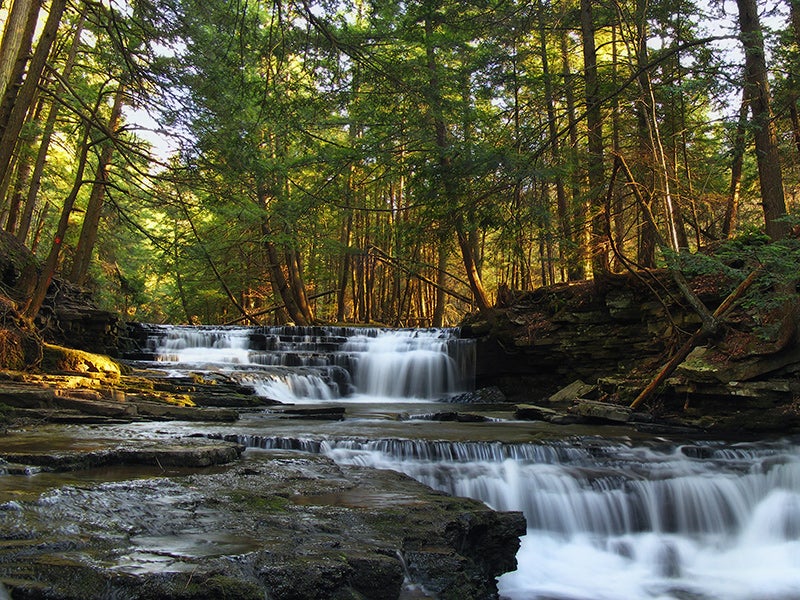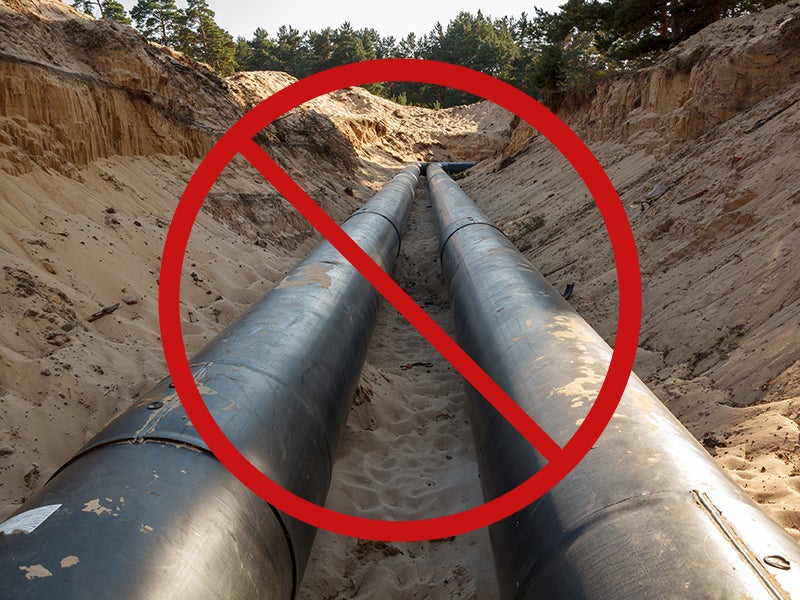Challenging the Interstate Constitution Gas Pipeline
A 124-mile natural gas pipeline is proposed to run through portions of New York and Pennsylvania, raising concerns that the project will increase fracking and threaten local air, water, and wildlife. Earthjustice intervened on behalf of a coalition of environmental groups to challenge the pipeline.
Clients
Regional Office / Program
Case Overview
The proposed Constitution Pipeline was slated to carry fracked gas through Pennsylvania and New York, threatening water quality, wildlife, and public health. Following a series of legal challenges by Earthjustice and our partners, one of the companies backing the pipeline abandoned the project.
The proposed 124-mile pipeline—a joint venture between oil and gas company subsidiaries Williams Partners Operating, Cabot Pipeline Holdings, Piedmont Constitution Pipeline Company, and Capitol Energy Ventures—would have transported gas from receipt points in Susquehanna County in Pennsylvania through Broome, Chenango, Delaware, and Schoharie Counties in New York to existing pipeline systems.
The 124 miles of pipeline and additional miles of access roads would have disturbed hundreds of acres of land and will cut across forests, watersheds, and special protection waters. The resulting forest fragmentation could have harmed endangered Indiana bats and vulnerable migratory birds. In addition, the compressor stations at either end of the proposed pipeline presented a threat to air quality and public health.
Aided by the controversial high volume hydraulic fracking process and regulatory vacuum at both the state and federal level, gas drilling in Pennsylvania has increased exponentially in recent years. The pipeline could have spurred this already frantic pace of gas drilling and fracking—along with the air, water, and climate pollution that accompanies such development—and would have laid the groundwork for industry to expand operations in New York. The impacts associated with this industrial activity include: spills of diesel fuel and fracking chemicals, methane migration into groundwater; contamination of waterways with fracking wastewater; fragmentation of intact forest habitat; and the industrialization of formerly rural landscapes.
On behalf of clients such as Catskill Mountainkeeper, Riverkeeper, and Sierra Club, Earthjustice has been engaged in close partnership with other groups in numerous legal battles to stop the project, including challenging the original approval of the pipeline by the Federal Energy Regulatory Commission and helping to defend the State of New York’s decision to deny Constitution’s application for a critical permit under the Clean Water Act.
In 2020, Williams Partners Operating ended its investment in the pipeline’s development.

Case Updates
Case page created on July 17, 2013.
